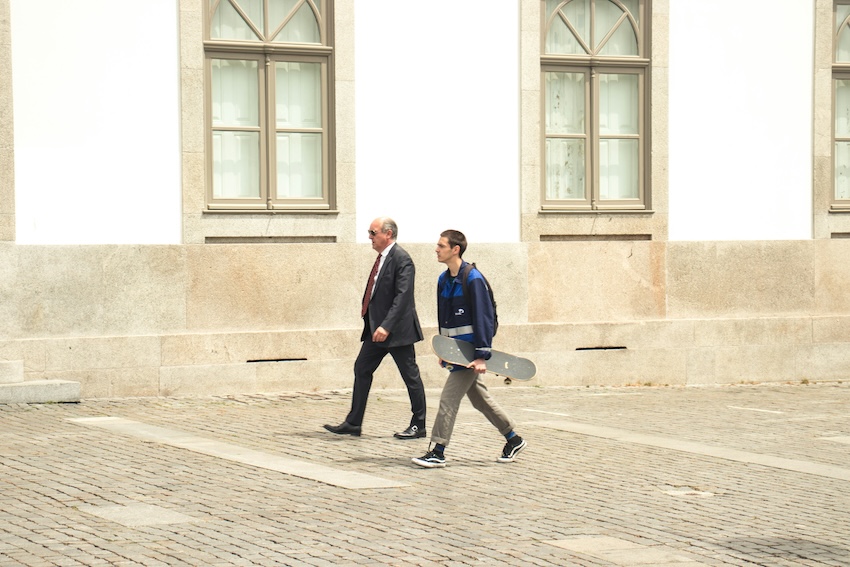Featured in

- Published 20170502
- ISBN: 9781925498356
- Extent: 264pp
- Paperback (234 x 153mm), eBook
IN SEPTEMBER 2016, I took a trip to Japan that was originally meant for me and my boyfriend. It had been a long time in the planning: budget flights bought months in advance, travel guides thumbed, accommodation booked. But then, one week before we were meant to leave, he sent me a message: he wasn’t going to Japan, and he didn’t think we should see each other anymore.
In the week that followed, I bleached my hair, cried at work, drank and smoked too much, and listened to ‘Landslide’ by the Dixie Chicks more than I’d care to admit. I was bereft and anxious as to whether I should still take the trip. From the many conversations I had about it, a pattern of opinion slowly emerged. While I mainly expressed doubts about going, everyone else was urging me to leave. Through travel, it seemed, my grief would pass easily and swiftly. Perhaps I would find romance in an overseas dalliance. The best way to get over someone is to get under someone else. Some pointed out that going away meant leaving the troubles of home behind: it would be respite, a balm. Most often, people said that through travel I would ‘find myself’– small moments of clarity and meaning in the navigation of a sprawling foreign city.
It’s an assumption that’s persistent and largely unquestioned: travel makes us better, more rounded people. As much as it is about discovering place, culture and difference, our ideals of travel are deeply entrenched in its benefits of self-discovery. In his 2002 book The Art of Travel (Pantheon), pop-philosopher Alain de Botton argues:
If our lives are dominated by a search for happiness, then perhaps few activities reveal as much about the dynamics of this quest – in all its ardour and paradoxes – than our travels. They express, however inarticulately, an understanding of what life might be about, outside the constraints of work and the struggle for survival.
As my peers and I tip from our early to mid twenties, a time in which self-discovery is cast as paramount, we elevate travel from mere tourism to a journey of enlightenment: when a rich sense of self is the end goal, every step is pilgrimage.
Travel is one of the few places where secular society falls headlong and unreservedly into the realm of the spiritual. Think of Cheryl Strayed’s memoir Wild (Knopf, 2012), in which Strayed, grieving the death of her mother and descending into heroin use, hikes over 1,700 kilometres alone in order to better get in touch with herself. So too in Elizabeth Gilbert’s memoir Eat, Pray, Love (Penguin, 2006) does the author use travel as self-discovery, through post-divorce travels to Italy, a sacred ashram in India, and Bali. In this sense, it is not so much the movement itself that is transformative, but the enlightenment that the journey provides. Travel, spirituality and a supposed way to live and be are tightly wound and difficult to pick apart. These are new types of biblical stories: narratives we tell and recount in order to better live.
ONCE I NOTICED this entwining of travel and bettering ourselves, I could see how it saturates culture. Travel memoir, in all its diverse and varied forms, is always as much about the author as it is the destination. The question, most often, is of what travel can do for us: memories, photographs, experience, discovery. Gap years, sea changes, tree changes, student exchanges and volunteer tourism all nicely house the beneficial qualities of travel. The prevalence of travel in our culture, too, is why so many people told me that a trip to Japan would be the best thing for post-break-up grief. No matter how sad I was – bleached hair, tired, often talking through tears – travel’s high position in culture trickled down to friends assuring me it would be the salve I needed.
It was convincing enough: I did end up going to Japan. But I didn’t go alone. A friend came along last minute, filling the second flights and bedsides and museum tickets I had already booked. We did all the things I had hoped to do with my boyfriend: ate ramen in side-alley restaurants, drank in tiny bars, went to galleries, sat up late chatting and eating strangely flavoured convenience store food. In Nara, after lunch in a small vegan café, an elderly man drove us through the rain to a park, speaking to us the whole way in Japanese we hadn’t learnt to understand. He pulled up at the park, led us to a small wooden pagoda overlooking a lake, and began to clap and gesture at the roof. It took a while, but we soon realised he was showing us the acoustics of the structure. He clapped, and then we clapped, and we all smiled at each other – the only means of communication we had. He bought us crackers to feed the deer, we smiled at each other again, and he left. It’s the kind of tooth-aching anecdote that travel memoir is full of: small moments of connection that suppose a togetherness of humanity, and so, self-reflexively, there you have it.
But while I certainly didn’t feel any worse in Japan, I didn’t feel any better. There were no moments of revelation, or moments of clarity. I drank a lot and chain-smoked, cried and listened to sad pop music. I was, basically, as I had been before I left, but with more distractions and in more picturesque locations. Late at night I would clamber out on to the small balcony of whatever tall apartment building we were staying in and look to the lit Tokyo skyline. Earlier that year, in a period of anxiety and a low point in my decade-long eating disorder, I’d told my boyfriend that when I was stressed I would think of us looking at a Tokyo skyline and it would calm me down. And there I was, crouched and bent with knees pinned to chest, watching it alone. It was sad in a way that was hard to forget, no matter where I was. If I’m honest, it still is. Where I’d been promised change and respite and balm, my trip to Japan was mostly just consistency. My feelings hadn’t dissipated over the ocean. Sadness travels; anxiety travels too.
AND SO, TRAVEL’S supposed cure-all short-cut to self-discovery and satisfaction had not really worked on me. Perhaps it was just the circumstances in which I travelled, or maybe it was the amount of pressure I had put on it for distraction or relief. Unlike most of my friends, I had not travelled overseas as a child or teenager: I didn’t leave the country until I was twenty-two. In Eat Pray Love, Gilbert, the great face of travel as self-discovery, asks, ‘What is it about the American obsession with productivity and responsibility that makes it so difficult for us to allow ourselves a little time to solve the puzzle of our own lives, before it’s too late?’ It’s a question that’s posed as rhetorical, but when taken in context it’s quite easy to answer.
My parents couldn’t afford for us to travel as I grew up. Their income was below average, and the idea of travel as a necessity would have seemed an upper-middle-class indulgence. When I moved out of home I studied, and worked only enough to sustain myself through university. I equated my lack of travel with a lack of worldliness: I was a poor unsophisticate, uncultured next to my peers. As soon as I had the means to travel, I had expected it to be revelatory.
It’s an expectation that’s insidious, and becomes problematic in practice. If travel is a process of self-discovery and self-actualisation, this self-discovery is a luxury not afforded to everyone. The time and money to travel overseas, even without supposing it as a means to find yourself, is a privilege I’ve enjoyed. Maybe not as much as others, but certainly more than some. Yet despite my now tertiary-educated and relatively comfortable existence (I pay rent in a city share house and can eat out whenever I like), when I scroll through social media and see friends living overseas, all I feel is a deep sense of inadequacy, and make a comparison between us that renders my life less interesting, less exciting, less fulfilling. By financial and emotional bounds, and even by choice, I’ve stayed where others have left. It’s the glorification of travel that makes that seem dull or unsatisfying. But what can we do with that, other than question it? Travel, as it stands in our culture, tells us to go out and find answers, but resists being questioned itself. Outside of bringing these problem to light, though, I’m not sure how to resolve them with our narratives of travel. Whether it be privilege or problem or even sadness, naming something doesn’t make it go away.
Despite all of this, I now find myself at a crossroads that many young creatives do: should I move interstate or overseas, or stay put? It is strange, troubling even, that I can unpick the desire to travel and move and still feel it keenly. It shows just how pervasive it is. Friends tell me that moving will not make me feel better, or more sure of myself, and I hear and believe them. A post-break-up holiday is fine, but a permanent move for self-discovery is a cause for concern.
I’m sure that if I go I’ll probably prove them and myself right. In terms of place, I see myself anywhere and nowhere. Perhaps that’s a luxury, and perhaps that’s an affliction. But, this desire to travel, however relentless and complex, is one we all continue to feel. On those small balconies in Tokyo, quiet and consumed with thoughts of how and why I came to be there, its easy now for me to forget that always, eventually, I got up, pulled open the sliding door, and went on.
Share article
About the author

James Butler
James Butler is a Brisbane-based writer, bookseller, and the co-founder and culture editor of Scum magazine.
More from this edition

Under the skin
MemoirEveryone forgets that the real force behind the feminist movement was individual women’s disappointment with men. Even though equal pay for equal work and...

Waiting our turn
EssayGENERATIONALISM IS A complex phenomenon. The concept of a generation is obvious: the social and economic contexts for a group of people born around the...

A little too close to the sun
MemoirWhen this essay was reprinted on The Guardian website on 6 July 2017, the writer added the short introduction below in order to give...